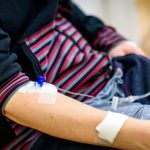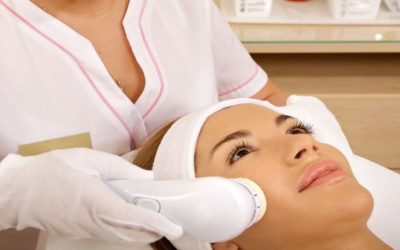The resolution to lead a healthy addiction free life is a very welcome decision. It is not a very easy journey and achieving self-restraint requires hard work and dedication. However, it starts with and involves very small and simple steps and the resolve to stick to it. The first crucial step is to realize the issue at hand and seek help through rehabilitation centers. Rehab centers are not only for substance abuse treatment or for treatment for alcoholism. They also provide help for eating problems, suicidal or self-harm tendencies, behavioral issues, sex dependency and so on. The decision to choose a type of rehab depends on the type of addiction, the level of addiction and lifestyle needs. The choice between inpatient vs. outpatient rehabs can be made appropriately only when the patient knows what they are.
What is the difference between Inpatient Rehab & Intensive Outpatient Rehab?
Inpatient rehab requires staying in a residential facility supervised 24 hours a day by trained detox experts. It is best suited for those who have a very high level of dependency issues with little or no self-restraint. Inpatient rehab takes the patient out of their life and places them in a supervised facility where the patient is away from stress, temptation and relapse.
An Intensive Outpatient program provides more freedom as the patient does not require staying in the facility. It is best suited for those who have family and work obligations and do not require 24 hours medical supervision.
Who are the candidates for Intensive outpatient Program (IOP)?
In intensive outpatient treatment, the patient goes through a structured treatment program in the day and returns to his home after his treatment schedule. The patient has more control over his life. He can get help for his addiction, still be there for his family, and go to work. However, it is not meant for everyone. Those who are best suited for intensive outpatient treatment are:
1. Those who have short-term addiction problems.
2. Do not have very serious addiction issues.
3. Do not have self-harm or suicidal tendencies
4. Have obligations of a family like kids or elderly parents to look after.
5. Have work obligations.
6. Do not want others to know about their addiction problems.
7. Those going through recovery after inpatient rehab program for the continuity of treatment and supervision.
What are the key facilities of an Intensive Outpatient Rehab center?
There is a set of services, which are crucial to every outpatient rehab. These may be deemed as the core services or facilities. These core services are:
I. Group Therapy and Counseling: Group therapy is the very heart of the outpatient program. This helps the clients in communicating, developing skills and improving interpersonal interactions. It boosts the confidence level and the determination of the members of the group. The groups can be divided based on skill development, psycho educational, support group or interpersonal interaction.
II. One-on-one sessions: An individual counseling format is not the first line of treatment in IOP, but it is important. Generally, a 30-50-minute counseling session is recommended which can be done weekly and tapered off later.
III. Psycho educational training: It should be provided by expert trainers who have good knowledge about the process of addiction and recovery. The clients are grouped together in support groups and are encouraged to interact. They are stimulated to understand and relate to the discussion topic with their personal experience.
IV. Medical management: Dual diagnosis recovery requires dedicated pharmacological management along with other psychosocial approaches. The need for medication should not be ignored and the clients should be prescribed the appropriate medicine needed to combat their issues at hand.
V. Monitoring and Relapse prevention: Monitoring the patient periodically to prevent relapse and to assess whether the targeted therapy is having the desired effect is a very important part of the IOP treatment schedule. Some of the rehab centers rely on their clients self-reports whereas some may undertake periodic tests to assess any drug or alcohol reuse.
Apart from this, the rehab centers should have spiritual and vocational support, family counseling and involvement programs. There may be additional services and facilities added to enhance the experience while the treatment is going on like transportation, family support, housing and recreational facilities and so on.






